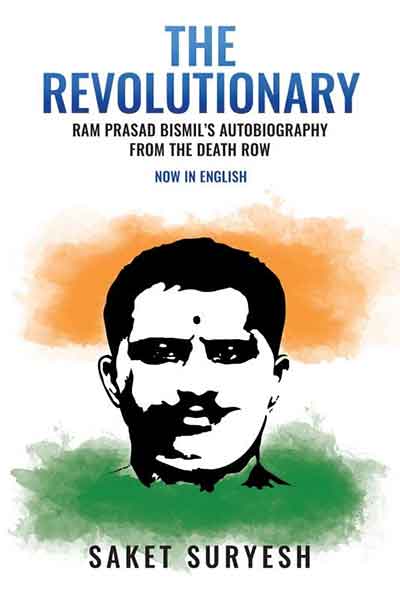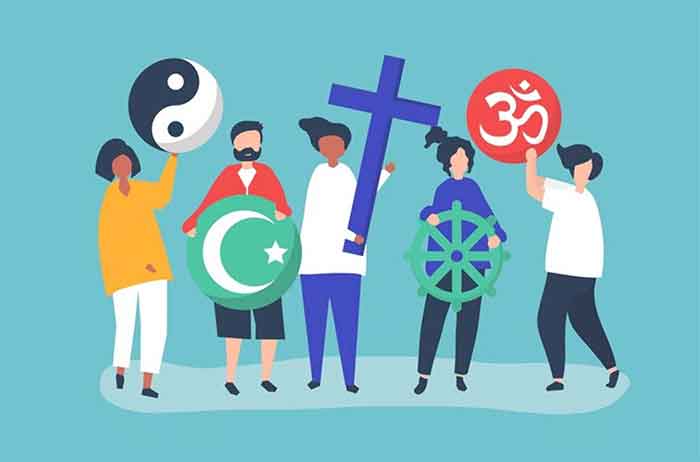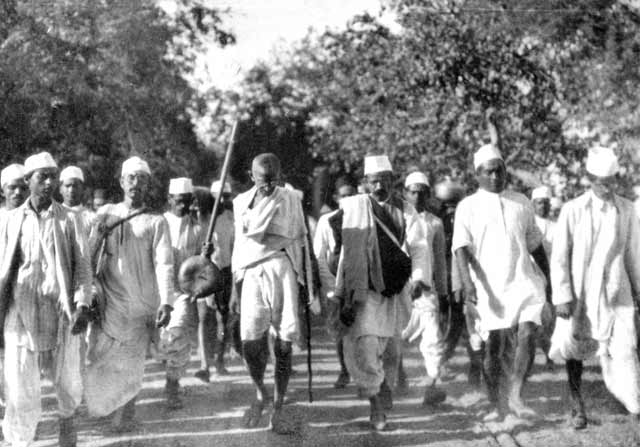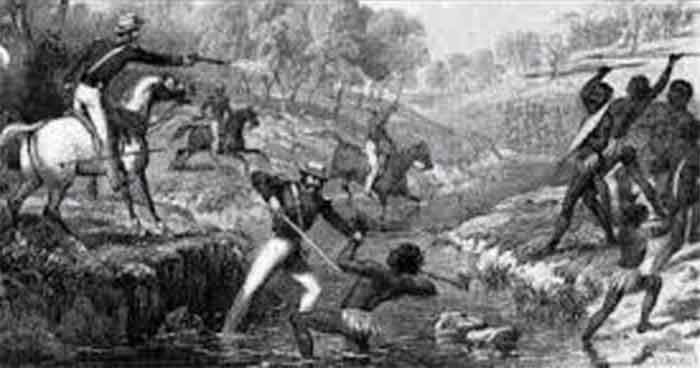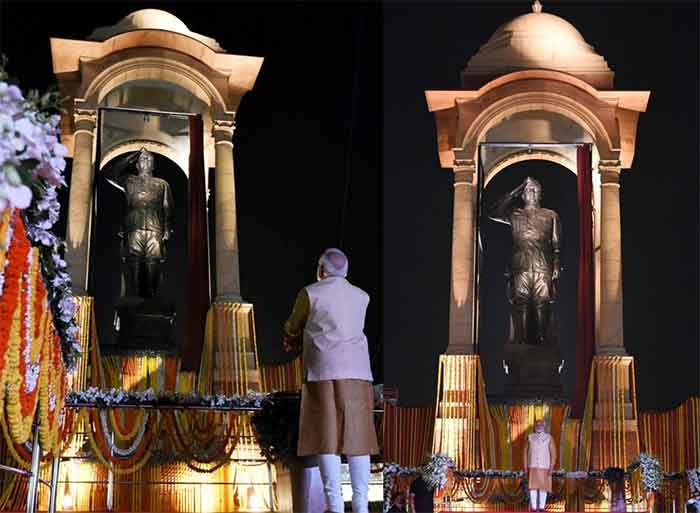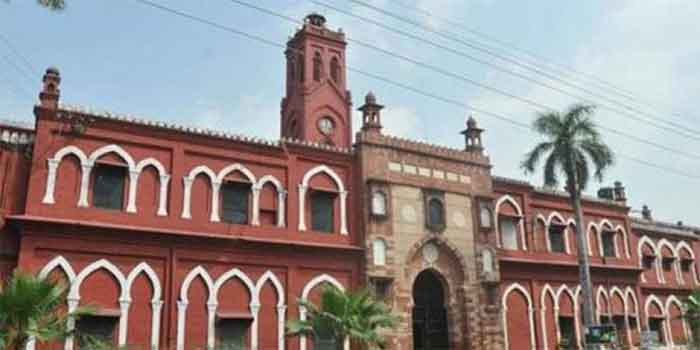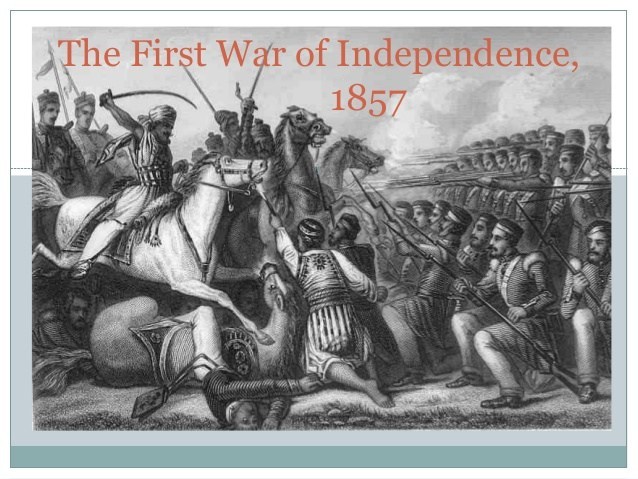
My ancestors were directly affected by the momentous turn history took. Though not in the eye of the storm, living far from the center of action, and being academics rather than men of action, yet they lost a great deal because they would not collaborate with the ghasib (usurper), the term my nana used for the British till he died in 1962. They did not lose any members of the family to British reprisal nor did they have to go underground. My elders explained this standing on the sidelines by harking back to the declination of the caliphate offered to a descendent of Imam Ali, by the Abbasids after the latter had overthrown the Umayyads. It sounds rather far fetched to me, but my Nana insisted it was part of the historic memory we carried from the martyrdom of Imam Husain.
To pay the devil his due, many Englishmen had tried to nativize themselves; they used to frequent concerts of dancing and singing girls, where the Indian elite sent their children to learn etiquette and manners and polish their diction. Quite a few married local women and counted several notable Urdu and Farsi poets among their ranks. They even flattered themselves by getting the natives and their juniors to call them Nawabs. But the trend was effectively quashed by the advent of steamships cutting England to India journey to two weeks, unleashing a veritable avalanche of English girls on unsuspecting expatriates.
With the defeat of Napoleon in Europe, the French lost their support from the home country and yielded to the British in India too. They still had to cater to the wishes of the Nizam and the Maratha Peshwas. The triad, British, Nizam and Peshwas ganged up on Tippu. The British after getting the better of the ruler of Mysore imposed humiliating treaties on the Nizam and the Marathas. With the field uncontested the British started taking on the airs of conquerors and disdained socialization with the natives.
Muslims actually felt the loss of Suzermity, Hindus of the dream of ruling India in place of Muslims. Power had once been nearly in the grasp of the latter when Marhattas had laid a siege to Delhi. The feeling of deprivation was, however, not directly related to religion, as was made perfectly evident by the Hindus joining hands with their Muslim compatriots, after leaderless soldiers had already revolted. They had been alienated by the supercilious attitude of British officers. They missed the paternalistic behavior of the Indian army chiefs. Their complaints had not been paid any attention to. Mangal Pande along with several Indian soldiers had already been executed in Bengal. The last straw was the rumors that the cartridges they had to bite on had been greased by beef/pig fat. The insensitivity of the British thus affected all sections, creeds and ethnicities. The flag of rebellion was raised under the leadership of the self same pathetic Bahadur Shah Zafar. It was technically not a rebellion. Bahadur Shah, as he was to assert in his trial later, was only claiming what he had inherited from his predecessors and had simply withdrawn the charter he had bestowed on the East India Company. He was a reluctant warrior, and was fully aware of his inadequacy. He thus exhibited a rare insight not common in the ruling class. He. Wanted to be left alone, to his poetry and pension.
Some historians claim that he was physically forced into the leadership role.. He never had any control, princes openly flouted the orders of the non-royal commander in chief he had appointed.. In fact the only pertinent decision he took during the whole campaign, and which was followed, was to ban cow slaughter during the Muslim festival of sacrifice , which had fallen during the conflict, thus paying rare homage to Hindu sensibilities emulating at least in one respect Akbar, his illustrious predecessor. The whole campaign was terribly disorganized and ad hoc. Communications were poor, supplies uncertain. It totally lacked unified leadership. . It did enjoy unity of purpose, zeal and enthusiasm, never to be matched before or since, in the annals of Indian history. Spirits were high and emboldened by early success, Indians performed beyond expectations. Conditions in the field, though remained chaotic. There were atrocities on unarmed civilians, as there are in any war and revolution (Nowadays it is impersonal when you launch a cluster bomb, you don’t know who you are going to maim and kill and is called collateral damage).
In Inspite of all the chaos, mismanagement, lack of leadership, supplies, and uncoordinated effort of warlords, Indian forces very would have succeeded in ridding India of the English, except that Punjab, which had never been in the main stream of power play in India, came the rescue of the British. The province had had a more eventful history than the lands in the plains of Ganges- Delhi, UP, Bihar and Bengal had. It had a new dominant religion Sikhism, derived in part from both Islam and Hinduism. Because of the Moghal repression , which had started with Jehangir and carried on by Aurangzeb, it had become militant. With the implosion of the Moghal rule Ranjit Singh a Sikh chieftain had managed to build a large state comprising all of Punjab, current NWFP and extended into Afghanistan. It imploded in its turn at the death of Ranjit. . The English had dealt with Ranjeet’s successors with an easier hand taking the last prince into a luxurious exile in England where he was feted as the black prince. Punjabis being generally more robust and tall, the English perhaps felt a closer kinship with them and recruited them in their army in large numbers. But the main reason the British won was because they fought ferociously. They had their backs to the wall-read sea into which they would have been thrown, if defeated. Tariq, a historic Muslim General is reputed to have burnt his ships when cornered at a corner of Spain so his troops would not have the choice of retreat. He defeated a far superior-in numbers and arms- force. Gibraltar is the deformed version of Gabrultariq. In more recent times Jews annihilated the combined force of several Arab countries.
Punjab was remarkable in another way. All the invaders had to pass through it and all the major confrontations between them and the natives were on its border with Delhi , in Panipat a town whose claim to fame lies in the various battles fought there. Punjabis, perhaps, had learnt over centuries that they could reduce collateral damage by offering right of way and accepting suzerainty of whoever was the victor. They had allowed unimpeded passage to all the invaders from times unknown.
In the event the English won, wreaking terrible vengeance on Indians, killing a dozen or more sons of Bahadur Shah in cold blood, hanging people on trees for miles and miles, looting, pillaging and murdering, burning whole neighborhoods and demolishing villages and towns city and country. Supporters were suitably rewarded, given large land- holdings and titles. The ancestors of the current feudal lords in Pakistan were among the chief beneficiaries. Princes and nobles who had remained neutral were chastised; imposed English agents imposed on them, their land holdings reduced, and forced to curtail their ostentatious lifestyle. My ancestors fell in that category. .
Indians, Hindus and Muslims alike, except those in the Punjab, Deccan and Madras went into national mourning. Madras was the first province to come under British control. Nawabs of Deccan had supported the British against the Marhatas and Tippu after they had been worsted by the Marhatas. The British after quenching their thirst for blood moderated their stance, the crown took over from East India Company, which was a conglomerate of British, Feudal/industrial/mercantile interests. India formally became a part of British Empire and Victoria its empress. The British became more careful and cautious, trying to develop a comprador class, giving subordinate administrative, judicial , police and non commissioned officer Army jobs to Indians. The rare senior job that an Indian got was based not on merit but on genealogy- descendents of their supporters , traitors for Indians, were naturally favored. But the rare Indians who were elevated to high judicial office could still not try a British. Some favored and fewer enterprising Indians went to England for higher education. India did not offer specialist training in medicine, an English trained barrister was a creature far superior to an Indian law graduate and a degree from oxford or Cambridge conferred a near white status.
The British had introduced a colonial administration service It was in part based on Moghal administration. In order to create a comprador class they made the tax collectors job hereditary. They were later to invent the Indian civil service, whose competitive examinations were held in London. Only the super rich could afford the cost. Rarely a super bright student would be sponsored by a relative, generally with a view to marry him to a daughter. It was only in the early twentieth century that the even the progeny of the toadies were allowed into the superior services. The colonists had seen the writing on the wall and it was to shore up the crumbling edifice that Indians were permitted into the exclusive club.
But the British did develop an adequate transport system, railway and road, communication, telegraph and post (they had initially adopted the Moghal “Harkara” message carrier system). They did establish universities , Medical, and Engineering colleges some dating back to eighteen sixties, agricultural and law and teachers training colleges and such services as Geological survey, meteorological departments, banking and financial service, scientific research council etc, all the innovations some neglected by Moghals,-others could not be conceptualized in earlier days-and other rulers alike.
Perhaps neglect is too strong a word to use. Indians richly endowed by nature as they were had no particular need to put themselves out as the needy Europeans did. Some historians claim that if the Indians had won in 1857 and reinstalled the Mughals, even if the country had escaped consequent anarchy, we would have been left behind in science, education and public services. I doubt the rationale of this statement. They forget that foreign rule demoralizes, and destroys initiative, independent thought, spirit of enquiry and skills of leadership. It engenders inferiority complex. The colonized, at best live in pathetic contentment. China, perhaps a worse victim of warlordism than India forged far ahead of India after breaking the shackles of foreign overlordship.. That, detractors of the Moghals would claim was due to communist rule. India, one may venture, may have found its own Mao. Subhas Bose could have been one.
Many Indian reformers and educationists, dubbed collaborators at the time, performed monumental service by developing educational institutions. Aligarh Muslim University and Benarus Hindu University come to mind instantly. Muslims specially, but for Sir Syed Ahmad Khan the founder of Aligarh Muslim University, would have lagged much further behind Hindus than they, in the event, did. The students of Aligarh University formed the back bone of the Muslim intelligentsia and spear headed the Pakistan movement. They formed the core of the civil service of Pakistan in the initial years. They gave succor and solace to the Muslims left behind in India.
But Aligarh and a few other institutions could not quite overcome the general sloth and lack of vision. Even as late as nineteen twenties my Nana’s brothers did not bother to acquire English education. They were quite proficient in Urdu and Farsi. They boasted that they had enough to live on. An English education would only qualify them for petty Government jobs which were beneath them. Their progeny started going to English schools only in the mid nineteen-forties.
The British did not, however, encourage industry for obvious reasons. They did not want Indians to use their raw material to make finished products to compete with the mills in Lancashire. It is a part of Indian folklore that the British had the hands of Dhaka muslin weavers cut off, as their own textiles could not compete with Dhaka’s superior produce, whose whole twenty one yards, as the lore would have it, could be passed through a wedding ring. They actively destroyed the Indian factories. The ships of the British Navy during the Napoleonic wars were built in India. The country produced more steel than all the European countries put together. But this discrimination was to some degree compensated for, by houses of Birla and Tata and many small to medium textile, leather and small machine cottage industries spearheaded by Gujerani and other business oriented communities.
After the dust had settled down post 1857, Indians started off by appealing to the generosity and good nature of rulers, presenting respectful memorials to the viceroy, pledging or renewing pledge of fealty to the crown and begging for relief from this or that or a favor in allocations of jobs/representation etc. Muslim delegations were led by the Agha Khan, in his current incarnation entirely a product of British colonial policy. Agha Khan, descendant of the Shia Fatimids, who ruled Egypt for a long time, were overthrown by Sunnis, exiled and were living a life of penury in Iranian Balochistan bordering an Indian province of the same name. They are now a distinct sect of Muslims and have little in common with the main body of Shias. A farsighted British administrator brought them over to India. The colonial government fed , clothed and rehabilitated them. They were eventually settled in Poona (Pune). The leader of the group was titled His Highness the Prince Agha Khan. It is a very cohesive group, with great spirit of community, brotherhood etc. The Prince served as an effective British surrogate among the Muslims of India. .Jinnah’s father , an Agha Khani, had sued the Agha Khan of his time for embezzlement of communal funds and had been ostracized by the community. Other members of the delegation were also from the most loyal to the empire feudals families.. Hindu delegations were similarly constituted.
With a rising number of educated professionals, dominated by the barristers , Indians raised the ante asking for more and more representation. They still wanted to remain loyal subjects with more recognition of their services etc. They still subscribed to the view that Muslims and Hindus were one nation. How could a change in faith alter the nationality of a person. Taken to its logical conclusion a convert should lose the birth nationality and be awarded the nationality of a country of his/her new faith. An overwhelming number of Muslims of India were the progeny of converts. Fanatics who subscribe to the myth of Muslim Ummah Would do well to remember that in most Muslim countries the fact of birth in the country does not confer on the person the status of a national.
But the latent divide between then Hindus and Muslim had started becoming apparent, with Muslims demanding fixed quotas in services and Hindus reluctant to concede the demand. It came to a head when Bengal was divided into two units because according to the viceroy, it was too big and unwieldy to administer properly. The division was along approximately the same lines as that in 1947, with Muslim majority and jute crops in the East and Hindu majority and Jute mills in the west. Hindus protested vehemently, for them the unity of Bengal was sacrosanct. One of their main arguments was that the Muslims were recent converts from the lower social classes and bereft of education they would not be able to manage. The more rational among them talked of economic disruption, loss of Calcutta the main center of educational, industrial and cultural activity to the less developed eastern region.
From all accounts it would appear that Muslims from the province welcomed partition. But they did not get much support from their co-religionists from the rest of the country. The latter were, in any case, still on the Hind-Muslim band wagon. Hindus were much the more powerful element of the province and backed by the National movement forced the British to rescind the partition.
The first definitive step towards eventual independence, although he had no such intention,, was actually taken by a liberal English man, who founded the Indian National Congress (INC) in 1885. It was very much an upper class body, presided over by the luminaries of Indian social, cultural, professional, economic and political elite. The first president of INC was a venerable Parsi gentleman Dada Bhoy Nauroji. He was later to be known as the grand old man of Indian politics. As a result of the efforts of this forum, the rulers did concede limited representation to the Indians, but it was based on a highly restricted franchise. Only the educated or the wealthy could vote. This in effect meant the ardent supporters of the Empire.
One of the younger and arguably the brightest entrants was a barrister M.A. Jinnah who had served Dada Bhoy as secretary. Sharp as a needle, honest to the core, unshakable in resolve, confident to the point of arrogance, he rose rapidly in congress ranks and also reached dizzying heights in his profession. His biographers have related numerous incidents in his life, highlighting his courage, integrity and determination. He advocated secular politics and constitutional methods. He firmly believed in Hindu- Muslim unity. Separation of religion and government was an article of his faith for him. He was successful in impressing both communities. He was the only person ever to preside over annual sessions of both congress and Muslim league held simultaneously. Sarojni Naido, a leading member of Indian National congress, poetess and a member of India’s first post independence cabinet, hailed him as ambassador of Hindu Muslim unity. He had married a Parsi lady, twenty years his junior, the daughter of a close friend. The friend , a titled luminary, filed a case in the courts accusing Jinnah of abducting his daughter. The lady in a celebrated appearance in the court denied the charge and famously submitted that if anything she had abducted Janna!! He had engineered a Hindu- Muslim agreement on reserved seats, separate electorate and other measures to guard rights of Muslim in independent India..
But he was wholly cerebral. His speeches were logical, substantive, legalistic and mesmerized those who could understand him, including judges, juries and opposing counsel. He spoke no Indian language, yet dominated the legislature, overwhelming with incisive argument, the British and Indian members alike. He found it difficult to relate with the common man. He could never become a populist and later in life revelled in the adulation of the masses, though few understood him.
Gandhi wearing the halo of his success in South Africa appeared on the scene, advocated populist, extra- legal and unconstitutional methods He started mixing religion with politics. He freely used Hindu imagery in public meetings calling for Ram Raj. Hindu and Muslim elitists objected to this irredentism. He was eventually to change his stance claiming that he meant Insaf (justice) Raj, but it was to be too late. His detractors ran away with it. Proclaiming that the recitation of Quran and the Bible in his meetings was a “dikhava-a pretence” and merely a subterfuge to obscure the his hidden and real agenda of Hindu Raj. But he could speak to and energize the common illiterate man in town, city and village, capturing their imagination as none had done before. Gandhi too believed in Hindu-Muslim unity and took up the cause of Turkish caliphate which was close to the heart of Muslim India, vigorously supporting the campaign launched by the famous Ali brothers, Mohammad and Shaukat, in the process garnering Muslim support for the congress.
Jinnah would have none of it. He vehemently objected to introduction of religion in public affairs, predicting that it would actually lead to parochial politics and dissension between communities. He disdained non-cooperation, civil obedience, boycotts and strikes. Gandhi sidelined him easily and when he rose to dispute Gandhi’s program in an annual session of the congress of 1921, he was hooted down. Shaukat, the brawnier of the two brothers, threatened to lynch him. Gandhi did not move a finger to admonish the unruly crowd. Jinnah left town by the next train repeating his dire warnings that religion and politics were not compatible and would end in great disruption.
Jinnah was losing support among Muslims too. Feudal lords and obscurantist elements among the followers of the creed for their class and parochial interests supported by the colonial power were successful in side lining him The latter even called him “Kafir”infidel, apostate etc. Nationalist Muslims like Maulana Azad were acolytes of Gandhi and despised Jinnah’s insistence on constitutional methods of protests and demands.
From the perspective of the rulers Jinnah was a great threat to their paramountcy. They were mortally afraid of secularism which was the only ground Hindus and Muslims could unite on. They could not countenance a pillar of secularism and the most effective votary of Hindu-Muslim unity. A congress committee assigned the task of Hindu-Muslim representation in future independent India, headed by Nehru’s father was in the later thirties to repudiate the agreement Jinnah had painstakingly worked out and which had found general acceptance among both communities.
Disgusted, disillusioned and frustrated Jinnah went to England into voluntary exile and established a lucrative law practice. He could afford a mansion and a chauffeured limousine. The Muslim league in the hands of feudal Lords split into many factions and for practical purposes disintegrated.
Gandhi grew from strength to strength, totally dominating the congress, manipulating its leaders at will, ordering agitation, and withdrawing the call when things got out of hand. A popular young man, Subhash Chandra Bose, a fire brand from Bengal, darling of Indian youth, accepted by Hindu and Muslim alike, affectionately known as Netaji (Mr. Leader) was elected to a second term of Congress President ship against Gandhi’s wishes. He was the last one to be able to do so. He advocated a militant movement, violent protests and Guerilla insurgency against the British.. Gandhi forbade leading congressmen from joining the executive council. Bose was forced to resign, left the country, visited Hitler, got him to promise Indian independence, organized Indian national army from among the Indian prisoners of war in the Far East, but died in a plane crash in Formosa (now Taiwan).. He was secular, a passionate orator and dynamic leader who could sway masses like nobody else; unlike others he had no compunction in taking on Gandhi. If he had lived, it would have been difficult to partition India. But that is one of history’s might have beens.
Jinnah’s predictions came true. With loud proclamations of Ram Raj, hither to only wistful sighing of communal zealots, visions of re incarnation of a Hindu theocratic state, began to loom large on Muslim perception. Gandhi could not swim against the tide of revitalized Hindu obscurantism, and tried to use it as he had done with the issue of Turkish caliphate, no doubt with pragmatic motives. He could not afford to alienate the affection of Hindu masses. Nehru disdained it. Patel a close rival to Nehru, and a rightwing politician, was comfortable with it . Maulana Azad, about the only Muslim in the highest counsels of the congress, was flabbergasted . But no one dare cross Gandhi, they had seen what had befallen Bose.
Muslims were alienated. But they were rudderless. They had no credible leader. National depression visited them again. Muslim (and Hindu) feudal lords were scared out their wits as congress planned to confiscate their lands, even though Gandhi , true to character, was ambiguous, preaching that the feudals should act as trustees of the land and should use it to the benefit of their peasants. But land owners knew that fire brands like Nehru, with socialist orientation would, in the final analysis prevail. Few among them,, Hindu or Muslim supported the congress. Nehru had always had an irresistible appeal for the young and the passionate. Muslim youth started drifting towards the INC. With no viable alternative, more mature Muslims had second thoughts. If the congress was eventually going to rule they would be better off supporting it. If Hindu zealots got the upper hand, because Muslims had withheld support from the congress they would be much worse off. Hindu revivalism was raising its head and might gather strength.
An over view of the social/economic conditions of Muslims of India is pertinent at this point.. Muslim rulers had concentrated on North India, Delhi, UP , Bihar and Bengal .There was an out post in the South, the princely state of Hyderabad with a Muslim ruler Hyder Ali, at one time a minor officer in Hyderabad army, later joined the army of a Hindu chieftain and rose to the rank of army commander. In the fluid situation obtained at the time he managed to become the ruler, much the way army commanders do in the current days. He and his son Tippu defeated the British in four battles. There were other less notable Hindu and Muslim states in the South..Muslims who had emigrated from Arabia, central Asia and Iran had been the beneficiaries of the King’s largesse and constituted the empire’s elite. Some of them had even managed to retain many privileges through the British rule, many among them had supported the British in 1857. They had a higher share of jobs , property and land in northern India, except in Bengal where Hindus were predominant, than their percentage in the population would merit. Majority of Muslim League leadership hailed from these areas.
The proportion of ‘émigrés to local converts was much lower in other provinces of India. Considerable proportion of the new Muslims had accepted the faith to escape the burden and stigma of belonging to lower and untouchable classes. Upper class Hindus never forgot that aliens had elevated erstwhile dregs of the society to a level equal them in law. Bengali Hindus had openly demanded that they should be given seats in the assembly commensurate with their lineage, education and economic status, and Muslim majority be discounted as the latter were poor and illiterate and only lately had belonged to the lower classes. What is worse, is that émigré Muslims forgetting the egalitarian teaching of their religion adopted the mores and norms of Hindu upper class. Muslims had been largely excluded from education , business ,and jobs in the Muslim majority provinces, Bengal, Punjab Sind, NWFP and Baluchistan. They lived in slums outside all major cities.
When non-Muslims left (from Sindh) or were forced out of the other provinces of West Pakistan, during the cataclysm of independence, schools, colleges, Hospitals and offices were nearly completely denuded of staff. Business and industries collapsed. All choice locations in cities all over, had a post-holocaust look. Immigrants from India filled the vacuum. What Muslim majority provinces in West Pakistan did have in abundance were feudal lords. In contrast, East Pakistan had few Muslim landowners, they being mostly Hindus. This would as we shall see later, have a catastrophic impact on the very survival of the country.
Muslims from minority provinces fearful of being swamped by the congress and losing their privileged status in society, sent a delegation comprising the Agha Khan and Nawabzada Liaquat Ali to England and begged Jinnah to return and save Muslims. Jinnah disparaging the congress for its, in his opinion, muddled approach, feeling that Muslims at the end of the day would get the short end of the stick, perhaps motivated by avenging the slights he had suffered at the hands of congress leadership, agreed. He tarried in England long enough to settle his affairs , returned to India in due course and it would seem, effortlessly took over Muslim league, uniting all factions, vouch safing complete autonomy to provincial leaders and set about organizing the party among students, municipalities, towns, cities, provinces and at the center.
It was in actual fact far from easy. The feudal leadership on the western Muslim majority provinces did not actually accept his leadership till ML led by him had won the overwhelming majority of Muslim seats in the elections held in 1946- a year before independence and partition. Punjab leaders had openly defied, ridiculed and belittled him They flouted his directives and concocted coalitions based on non-Muslims capitalist/professional class and Muslim landlords. NWFP had a ministry led by the junior partners of the congress. Sind had a Muslim-Hindu coalition again land owner –capitalist based. Balochistan was governed by the Viceroy/Governor General through an agent to the Governor General. Only Bengal had a ML led government headed by Jinnah’s nominee, Khwaja Nazimuddin.
The British government had, in the meanwhile, been forced to cede some authority to Indians. Provincial elections were held in 1936. Congress won nearly all general and most of Muslim seats. Muslim league did poorly. This was a major set back. Jinnah simply had not had time to put Muslim league’s machinery in working order and gather mass support to force the feudal interests to follow him.. He was further handicapped by poorly motivated (they were feudal too, only from minority provinces) assistants, disgruntled rank and file and empty coffers. Congress had a track record, dynamic leadership, superb organization and funds in plenty.
Congress formed a government in all provinces, entering into coalitions in Punjab and Sind with nationalist Muslims, mostly land owners, loudly proclaiming that there were only two parties in India: the British and the congress. Jinnah put boldface on it, rebutting that there was a third party, the Muslims of India.
Jinnah, highly secular, sporting a lifestyle of an upper class Englishman, Muslim in name only, he drank alcohol and relished ham , had to play the communal card. But he did not stoop to demagoguery, never claimed that he was a warrior on a white charger, staking his life to save Islam. But he let his subordinates do it. He only demanded that the legitimate rights of Muslims be guaranteed in an independent India. He worked tirelessly to organize the party and toured the whole country on campaigns of mass contact. By sheer force of personality, transparent honesty, obvious sincerity, sheer tenacity and acclaimed integrity, he overcame the setback , which would have shattered a lesser man. People listened to him, even though he did not speak any Indian language, was obviously uncomfortable in Indian dress and when coaxed into praying in a Mosque, had to ask the man standing next to him “what comes next”. People braved weather, walked miles, and stood under the ferocious Indian summer sun, just to get a glimpse of him. I read in one of his biographies that once while he was visiting Madras, people in the city heard that he was in the area, and came in their thousands to see him. He sent word that he was busy. The crowd held firm. He came out, furious at being disobeyed and in biting tones , upbraiding the crowd that they were undisciplined, worthless, ignorant, no good mochi-walas (cobblers- untouchables in India). Not understanding a word, the crowd clapped wildly and screaming Qaid-e-Azam Zindabad (long live the great leader) melted away. Cold as ice though he was, he was touched to the core and vowed never to abandon his pitiable admirers.
He was helped in the task by students of Aligarh Muslim University who with unsurpassed dedication, visited practically every place in India, they could find a Muslim in. All this would probably not have amounted to much, the Congress was so much stronger and Nationalist Muslims of high stature and Malulanas (clerics) with vast following were supporting it. But fate played into Jinnah’s hands. It was only in U.P. that Muslim league had managed to win a significant number of seats in the state assembly. Its leaders, hankering after office, made an offer against the express wishes of Jinnah, to state Congress leaders to join in a coalition government. The local leaders were amenable to the request. But Nehru, idealistic and contemptuous of the communal character of the league and its poor performance at the polls, demanded that the Muslim league leaders dissolve the party and join the Congress before being considered for cabinets posts. This was too much to stomach even for the feudals who led the party. Maulana Azad, one of the most important leaders of the congress, who could have become the first Prime minister of India, if he was self-centered and ambitious enough, opines that if Nehru had not spurned the advances, Muslim league would probably have collapsed. UP state league was the strongest component of the party.
Some congress functionaries, intoxicated with unaccustomed power, which they had lost ( according to them) a thousand years ago, behaved abominably to Muslims. This was by no means common behavior, was officially condemned by senior leaders, but the damage was done and was skillfully exploited by league workers Muslims left the congress in droves.
World war II was looming on the horizon. The British , on the verge of declaring war, asked congress for cooperation. Congress demanded status of an equal partner for India in the war effort and an unequivocal pledge of Independence after hostilities were over The British viceroy in India was agreeable but Churchill, now head of a national government in Britain, who had once called Gandhi a semi-naked Fakir (beggar) proclaimed that he had not become the first minister of his majesty the king Emperor to preside over the dissolution of the Empire, rejected the demand out of hand. Congress ministries resigned in a huff and the party gave a call for non-cooperation. The viceroy was left with little choice but to order the arrest of all leading congress leaders.
Jinnah took full advantage of the now uncontested field, proclaimed a day of deliverance, offered unconditional cooperation to the government, which would pay dividends later, and set about courting Muslims with renewed vigor. He had no problem fusing principle to pragmatism. He was staunchly anti-fascist. So was Nehru. But the latter, having misjudged the will of the British, thought that with the colonial power reeling in Europe, it would give in to Congress demands in India. If congress had followed the lead of Subhash Bose and had developed a guerrilla force, it might have been able to bend the British to their will. But “ahimsa” (non-violence) is no match for guns when the wilder of the gun is prepared and determined to use it ruthlessly.
Bio:
I was born in Dewa Sharif, UP, India in 1939.
I went to school from the fourth to eighth class in Gonda, UP and the 9th grade in Jhansi, UP, India.
We moved to Quetta, Pakistan and went to school for the 10th grade and intermediate college in the same town.
I was in Karachi University 1954-57, then Dow Medical College 1957-62. I Was in the National Students Federation from 1954 to 1962, trained in surgery in the Civil Hospital Karachi 1962-65, proceeded to England 1965 and trained in General surgery and orthopedic surgery till 73, when I left for Canada 1973-74, USA 1974-83, back to Karachi 1983 and built a hospital and went back to the USA in 1991, been in the USA since.
I retired from surgery in 2005.
I have worked in various HR and Socialist groups in the USA.
I have Published two books ,:”A Medical Doctor Examines Life on Three Continents,” and ,”God, Government and Globalization”, and am working on the third one, “An Analysis of the Sources and Derivation of Religions”.

